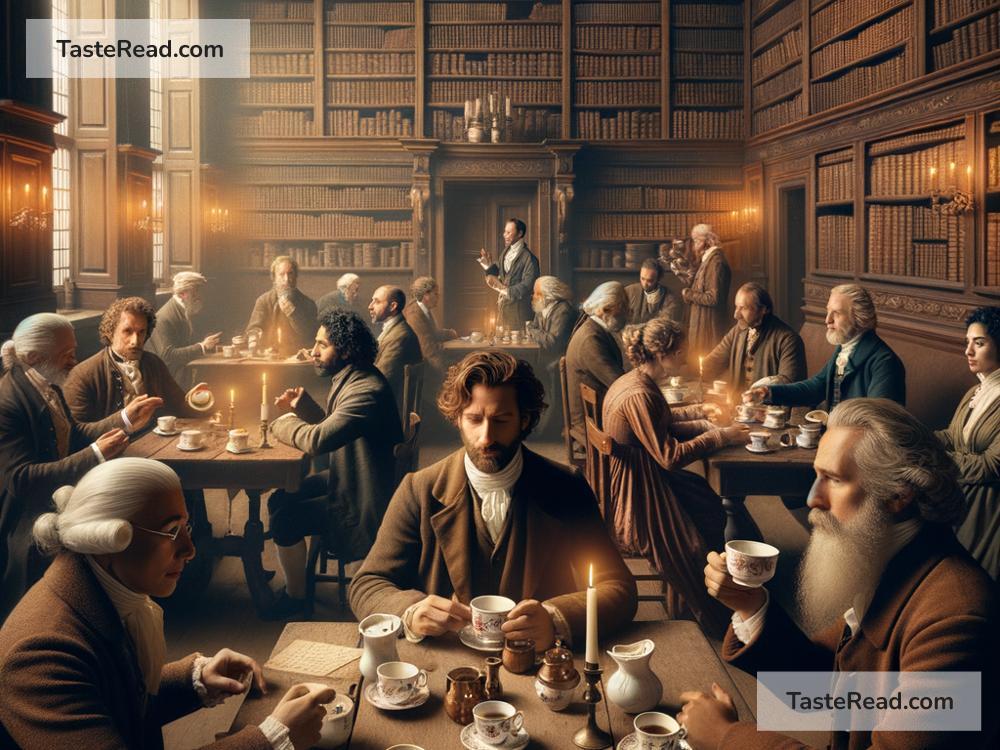How Coffee Became the Drink of Enlightenment
When you think about coffee, you probably imagine a hot cup of liquid energy, helping you stay awake and focused. But did you know coffee has a fascinating history that connects it to intellectual growth and creativity? Over the centuries, coffee has earned the nickname “the drink of enlightenment” because of its role in fueling ideas, discussions, and revolutions that shaped society.
Let’s explore how coffee became more than just a beverage—it became a symbol of inspiration and progress.
The Origins of Coffee
The story of coffee begins in Ethiopia, where legend has it that a goat herder named Kaldi discovered the power of coffee after noticing his goats acting unusually energetic after eating some red berries. Curious, Kaldi tried the berries himself and felt a similar boost. Monks in the region later used these same berries to stay awake during long hours of prayer and meditation.
Soon after, coffee spread throughout the Arab world. By the 15th century, it was being cultivated and brewed in Yemen, and coffee houses—places where people could gather to drink coffee and talk—started popping up in cities like Mecca and Cairo. These coffee houses became centers of social life, where people exchanged ideas, debated, and told stories. In this way, coffee first became associated with thinking and conversation.
Coffee Comes to Europe
By the 17th century, coffee had made its way to Europe, and it caused quite a stir. At first, some people were suspicious of the dark, bitter drink, even calling it the “devil’s brew.” But as coffee’s popularity grew, it began replacing alcohol as the drink of choice. This was a big deal because alcohol often made people sluggish and unfocused. Coffee, on the other hand, had the opposite effect—it woke people up and made them alert.
Soon, coffee houses started opening across European cities like London, Paris, and Vienna. These weren’t just places to drink coffee; they were vibrant hubs of intellectual activity. Writers, scientists, artists, and thinkers would gather at coffee houses to exchange ideas, write books, and spark debates. In fact, coffee houses became known as “penny universities” because for the price of a cup of coffee (just a penny), you could gain access to stimulating discussions and learn about the latest ideas.
The Role of Coffee in the Age of Enlightenment
During the 17th and 18th centuries, Europe experienced a period called the Age of Enlightenment. This was a time when reason, science, and philosophy began reshaping how people viewed the world. Enlightenment thinkers like Isaac Newton, Voltaire, and John Locke began questioning old traditions and focusing on ideas like freedom, knowledge, and progress.
So where did many of these thinkers spend their time? Coffee houses! These spaces acted like incubators for big ideas, where people could debate politics, religion, and science. Many historians believe coffee played a key role in the Enlightenment because it replaced alcohol as the drink of choice and provided people with the energy and focus needed for long discussions.
For example, in England, coffee houses were known for fostering debates about democracy and freedom of speech. Some of these discussions later inspired major political changes, like the Glorious Revolution and the birth of modern journalism. In France, coffee houses became meeting spots for revolutionary thinkers who questioned monarchy and pushed for societal reforms that eventually led to the French Revolution. Even in America, famous figures like Benjamin Franklin and Thomas Jefferson frequented coffee houses, where they discussed ideas that shaped the United States Constitution.
Creativity Fueled by Coffee
It’s not just politics and science that benefited from coffee; creativity also flourished in coffee houses. Many famous writers and artists drew inspiration while sipping coffee. For instance, Johann Sebastian Bach composed music celebrating coffee, while French philosopher Voltaire reportedly drank dozens of cups a day while working on his ideas.
Coffee’s ability to keep people awake and energized naturally encouraged productivity. Perhaps this is why so many masterpieces in art, literature, and science were created in coffee houses. They became places where inspiration met caffeine, and the results were extraordinary.
A Modern Symbol of Connection and Ideas
Fast forward to today, and coffee remains a drink closely tied to connection and creativity. Cafes around the world continue the legacy of the old coffee houses, serving as spaces where people meet to work, dream, and collaborate. Whether it’s students studying for exams, writers working on their novels, or entrepreneurs plotting their next business venture, coffee continues to fuel ideas and innovation.
Social media has also embraced coffee culture, with hashtags like #CoffeeBreak and #CaffeineFix accompanying millions of posts. Coffee isn’t just about the drink—it represents energy, motivation, and taking time to connect with others or focus on personal growth.
Conclusion
Coffee’s journey from Ethiopian berry to global icon of enlightenment is truly remarkable. Over centuries, it transformed from a simple stimulant into a drink that powered intellectual discussions, creative endeavors, and even revolutions. Its role in history reminds us that sometimes, the smallest things—like a cup of coffee—can make the biggest impact.
So, the next time you sip your coffee, think about the hundreds of years of conversations and ideas it has fueled. You’re taking part in a tradition of enlightenment, creativity, and connection that spans the globe. Who knows? Maybe your next great idea will come during your coffee break!


